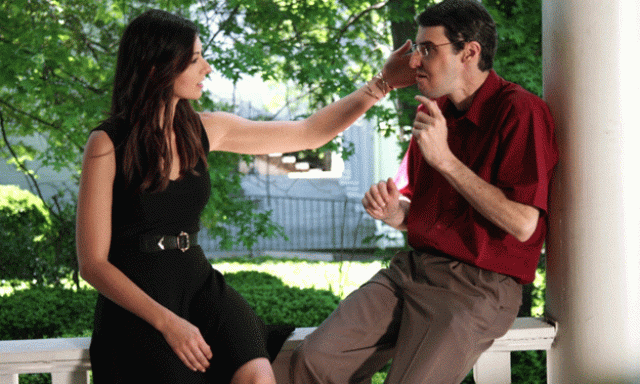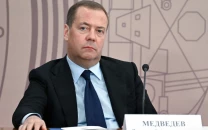Second chance: Woman sees brother's transplanted face on man with for the first time
"This is the face I grew up with"

PHOTO: NINE NETWORK

Rebekah's brother Joshua Aversano. PHOTO: FIND A GRAVE
An Australian television programme showed the moment when Rebekah Aversano saw and touched the face of her dead brother.

Rebekah Aversano. PHOTO: NINE NETWORK
The recipient of Rebekah’s brother’s face, Richard Norris from Virginia, US, was severely injured in a shotgun accident 15 years ago.
Read: Religious talk: Scholars say organ transplant allowed in Islam
Before the operation was conducted, Richard rarely went outside and lived a reclusive life.

Richard Norris. PHOTO: AP
Normally, transplant recipients don’t meet the families of their donors. However, in this case, Rebekah came face-to-face with the man who received some of her brother’s facial tissues and structures.

PHOTO: NINE NETWORK
"This is the face I grew up with," she said, as she touched his face.
In an interview with CTV News, Rebekah’s mother said that the decision to donate her son’s face was difficult, but it would have been what he wanted.
"Knowing our son, he would have wanted someone else to go on with their lives if he wasn't able to,” she said.
"After meeting Mr Norris, seeing him and speaking to him we can definitely see our son in him. We were just so pleased we were able to help Mr Norris even though we had such a tragic loss," she added.
The extensive transplant surgery took place at the University of Maryland three years ago. It lasted more than 36 hours.

Metamorphosis. PHOTO: CNN
Richard Norris had lost his lips and nose during the shotgun accident and had limited movement of his mouth.
Read: Russian man to undergo world's first head transplant
Founder of the charity Changing Faces James Partridge told the BBC he did not know of another case where the family of the donor had met the person who had received the face.
Further, Barry Jones, former president of the British Association of Aesthetic Plastic Surgeons, said there were many issues to consider.
"It must be rather difficult for any relative to meet a recipient but it must be particularly difficult for faces," he said.

Richard Norris after the surgery. PHOTO: AP
"On this occasion it seems to have been a happy outcome. But that might not always be the case."
He added that a family would have to ponder how they would feel about the personality of the person with the new face.
"I am not against recipients meeting donor families if both parties want too, but I hope they have been counselled properly before their meeting," he said.
This article originally appeared on BBC News.



















COMMENTS
Comments are moderated and generally will be posted if they are on-topic and not abusive.
For more information, please see our Comments FAQ